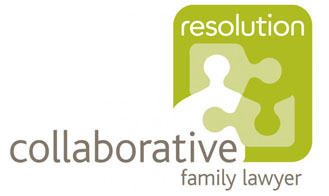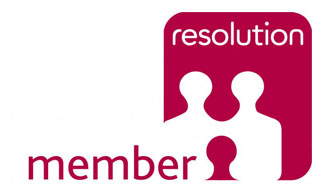Alternative Dispute Resolution (ADR) refers to methods of resolving disputes relating to family matters outside of the courtroom. This can include mediation, collaborative law, the One Couple One Solicitor approach and arbitration. All methods have the potential to reduce conflict and minimize cost, but we feel their main benefit is that they aim to preserve, not only the relationships within the family, but also the wellbeing of all involved.
As a firm, we have always encouraged clients to consider these options before jumping into litigation and, recent revisions to the Family Procedure Rules mean that, even if litigation has been started, the court will now also be encouraging parties to attempt non-court dispute resolution, where the timetabling of proceedings allows, by requiring both parties to complete a form setting out their views on using alternative dispute resolution methods to resolve the matters raised in the court proceedings. This initial form must be filed 7 days before the first on notice hearing in proceedings and then updated at any point the court thinks fit.
Hopefully this obligatory consideration imposed by the court throughout proceedings will make couples think carefully about the different ADR methods, even when they are in litigation, so as a more suitable option can be found to help settle family disputes quicker and with less overall damage to the family.
The aim of our firm is to explore all the ADR methods prior to embarking on litigation – we really do feel that litigation should be the last resort. All the methods are explained in more detail in the “Ways We Can Help” page on our website but mediation is probably the most well known and common form of ADR due to the requirement, prior to applying to the court, to attend an initial meeting with a mediator (Mediation Information and Assessment Meeting) where it’s explained what mediation is and how it might be of help.
The “New Kid on the Block” of ADR is the “One Couple, One Solicitor” process in which the couple
appoint a joint Solicitor who provides guidance and information to them together to encourage them to reach their own agreement on children and financial matters. Traditionally, it has always been viewed that a couple cannot be represented by the same solicitor as their interests were in conflict. However, this position has changed since the advent of ‘no fault’ divorce in April 2022 and now, as long as the couple agree that they both want to achieve a fair settlement without going to court, there is deemed to be no conflict and one divorce lawyer can represent both parties.
This way of dealing with divorce and separation holds many benefits and enables a single solicitor to work closely with the couple to understand their concerns, explore options for resolution, and inform the couple, together, what the position is in law and what a likely outcome would be if they went to court, taking into consideration what a Judge would consider fair in the circumstances. This not only reduces conflict at an already emotional, stressful time but encourages the couple to work together to reach a fair deal for them both. It treats the financial settlement as a shared problem rather than a costly legal battle that has to be fought alone and rarely provides satisfactory results for either party.
Another advantage by working with a single solicitor, is that couples can streamline communication and avoid the potential for misunderstandings or miscommunications that may arise when dealing with multiple legal representatives. This promotes efficiency and reduces the likelihood of conflicts escalating unnecessarily as well as making the whole process more time and cost-effective. One question that we’re often asked with this approach is whether the resulting order is as comprehensive as one obtained through the traditional court process. Rest assured that opting for this process does not compromise the legality or integrity of the outcome.
Once a couple have reached agreement through this process, the solicitor deals with the drafting of the order and accompanying paperwork and will deal with the submission of the order with the family court to ensure that, at the conclusion of the matter, the couple receives a legally binding and enforceable order.
Every step of the process adheres to legal protocols but has the advantage of the couple retaining control throughout the process. In our experience, it is this lack of control that causes a lot of anxiety in the more traditional court route. Here, rather than surrendering decisions to a judge, couples decide matters together, taking into consideration all the unique circumstances of their marriage, how their future needs should be met, and the assets divided. They retain complete ownership over the outcome whilst being legally guided by their solicitor.
In conclusion, all ADR methods have one thing in common; they bring the couple together – whether virtually or in person – and encourage and assist them to better understand the underlying needs of each other by helping them to find a way to communicate. This can only be a good thing and whilst ADR won’t be suitable for some couples, for the majority, there will be a process that fits. So, if you find yourself facing legal matters within your relationship, consider exploring ADR options but particularly the one couple, one solicitor process which provides cost and time savings, fairness and empowers couples to take control of their futures.






